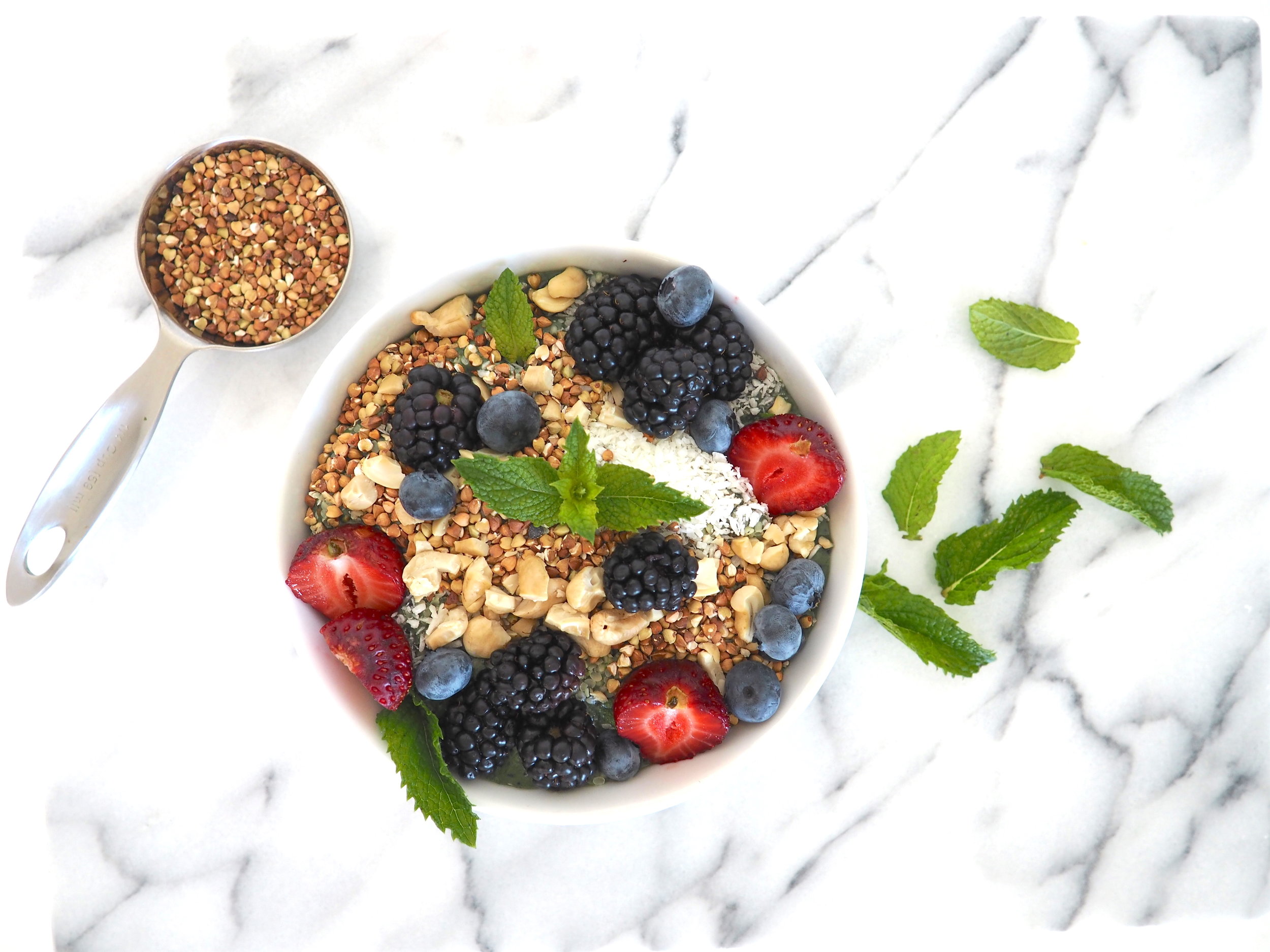7 Complete Protein Plant-Based Sources For Babes Who Want To Eat Less Meat & Dairy
Regardless of what we all grew up believing, meat, dairy and eggs aren’t the only sources of complete protein. There are 20 amino acids in the human body: nine of which are essential, meaning your body can’t produce them on its own and eleven that are non-essential amino acids meaning your body can produce them without the help from food. The nine essential amino acids are what we know as a complete protein, which means they're more beneficial than incomplete proteins. Animal sources aren't necessarily the best options, so try adding some of these alternative sources of complete protein to your next meal and see what you think!
7 Complete Protein Plant-Based Sources For Babes Who Want To Eat Less Meat & Dairy 🌱🌿
SPIRULINA
Spirulina is a type of algae and the best of all sources of complete protein. It is 60-70% protein compared to beef, which is only 22% protein. Per teaspoon, spirulina has 4 grams of protein, and a teaspoon of beef has just 1 gram. Not to mention spirulina contains more iron, calcium, and vitamin B12 than any other food. Use a tablespoon in a smoothie with some vanilla, a frozen banana, blueberries, and spinach with almond milk for a tasty treat that keeps you energized and strong all day long!
HEMP SEED
Hemp seed is especially rich in magnesium, B vitamins, omega 3 and omega six fats, iron, and potassium. Hemp seed contains 13 grams of protein per three tablespoons and a whopping 14 grams of fiber to go along with it! Sprinkle some on your next smoothie, oatmeal, or salad. You can also enjoy these nutty seeds as an alternative to protein powder if you wish.
CHIA
Chia seeds are one of the best plant-based protein sources of iron, potassium, B vitamins, fiber, and omega three fats. For only two tablespoons of chia, you’ll get 10 grams of protein and 14 grams of fiber to keep you full for hours on end. Though the seeds are tasteless, you can enjoy them in so many delicious foods like smoothies, oatmeal, puddings, salad dressings, energy snacks, and homemade protein bars.
Goji Berries
These red berries are not only a source of complete protein with 18 amino acids but have 500 times more vitamin C per ounce of oranges. They have a strong, slightly bitter, but with some of that sweet berry aftertaste. Add them to smoothies, granola/ trail mix, and salads!
7 Complete Protein Plant-Based Sources For Babes Who Want To Eat Less Meat & Dairy 🌱🌿
BUCKWHEAT
Regardless of its name, buckwheat is not related to wheat, nor does it contain gluten. It also isn’t even an actual grain, though it gets categorized in the grain family due to its nutrient profile. Buckwheat is the seed of a fruit plant and a rich source of complete protein, B vitamins, fiber, and magnesium. Many people enjoy it as a gluten-free alternative hot cereal though you can also eat it sprouted or made into granola. It has a rich nutty flavor with a robust heartiness that keeps you full for hours.
Bee Pollen
These granules created by bees from flowering plants is another nutrient dense food that has 5 to 7 times more protein than beef. Other than all the immune supporting properties bee pollen is an excellent antidote for fighting off allergies, particularly sinusitis and hay fever. You can use them as toppings for smoothie bowls or blend them in, top them on salads or cereal!
QUINOA
This magical grain-like seed is a rich source of protein and one of the healthiest complex carbs you can eat. Quinoa is also a rich source of iron, riboflavin, magnesium, potassium, phosphorus, and fiber. Cooked with some savory seasonings and veggie broth or even eaten for breakfast with cinnamon, bananas, and almond milk, quinoa is the perfect meal addition, any way you use it.
All of the foods mentioned are a complete source of protein, and some have higher amounts of protein than any animal protein (i.e. Steak= 25% of protein).


